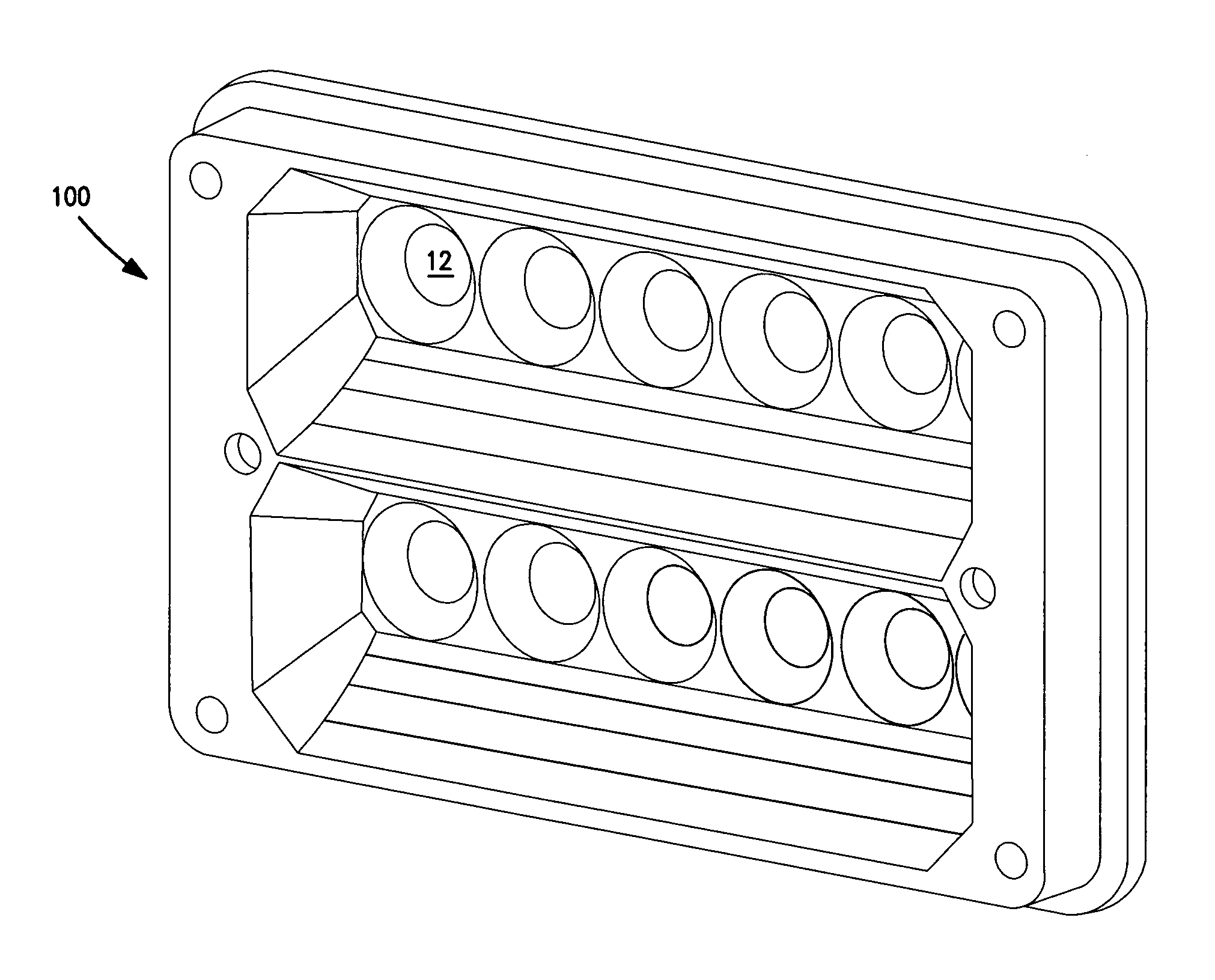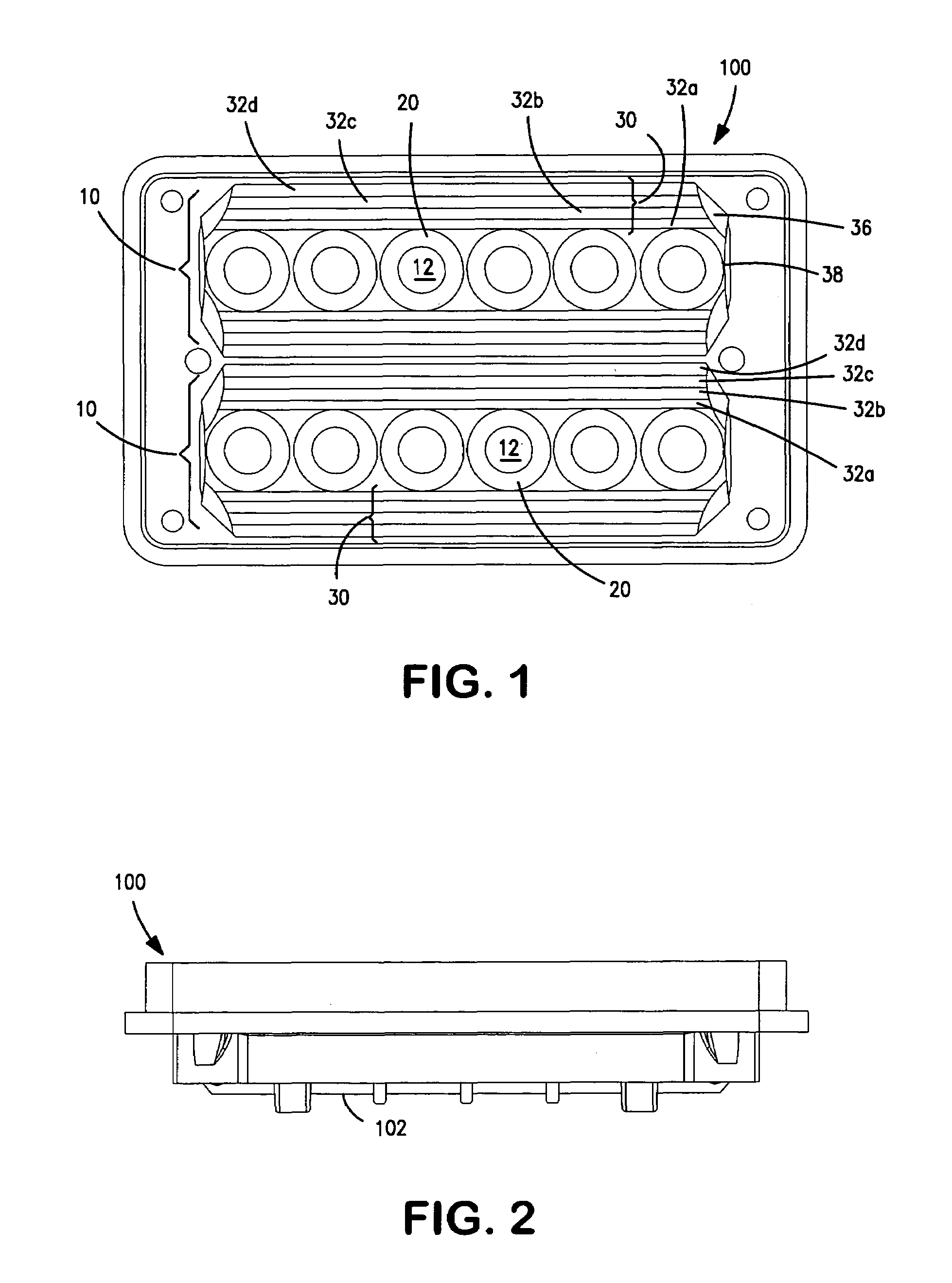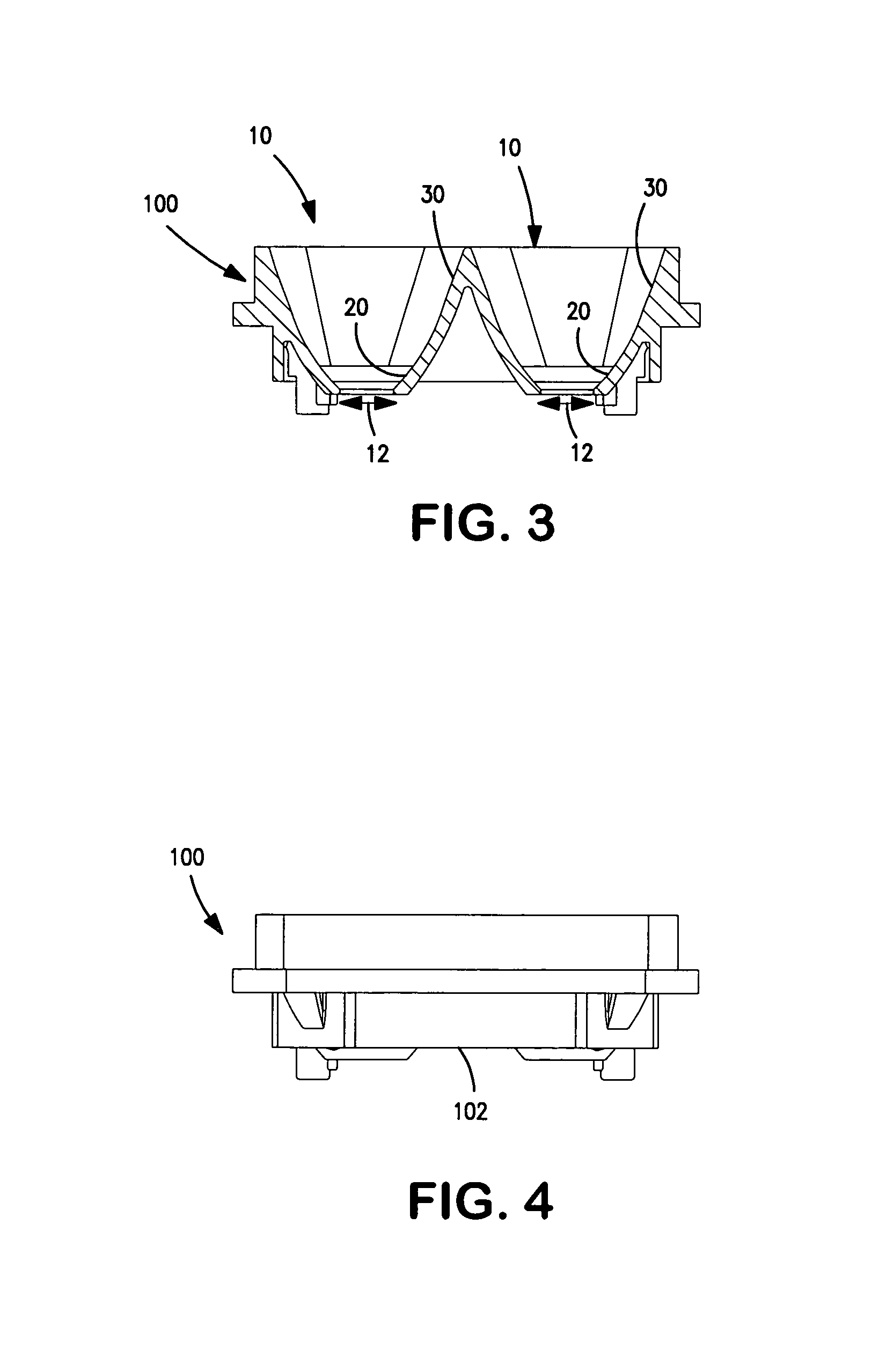Composite reflecting surface for linear LED array
a technology of reflective surface and led array, which is applied in the direction of lighting support devices, instruments, condensers, etc., can solve the problems of low efficiency of light-emitting diodes (leds), low efficiency of light-emitting diodes, and ineffective loss of light that is not directed to reinforce the desired pattern, etc., and achieves highly favorable illumination characteristics and efficient integration
- Summary
- Abstract
- Description
- Claims
- Application Information
AI Technical Summary
Benefits of technology
Problems solved by technology
Method used
Image
Examples
Embodiment Construction
[0031]An exemplary embodiment of a composite reflecting surface in accordance with aspects of the present invention will now be described with reference to the figures. FIGS. 1–4 illustrate a reflector 100 incorporating two composite reflecting surfaces 10. The reflector 100 is for a warning light 200 including two linear arrays 106 of LEDs 108 (see FIG. 13). In this embodiment, the two linear arrays 106 are arranged parallel to each other and extending along the length of the rectangular reflector 100. The back side 102 of the reflector 100 defines locations for securing PC boards carrying the LEDs 108. A lens 104 covers the front of the assembly. A thermally conductive plastic heat sink 110 covers the back of the assembly and provides a thermal pathway for heat generated by LEDs 108.
[0032]The back side 102 of the reflector 100 also defines openings 12 for receiving the lenses and bodies of the surface-mount LEDs 108. The back side of the reflector surrounding the LED openings 12 i...
PUM
 Login to View More
Login to View More Abstract
Description
Claims
Application Information
 Login to View More
Login to View More - R&D
- Intellectual Property
- Life Sciences
- Materials
- Tech Scout
- Unparalleled Data Quality
- Higher Quality Content
- 60% Fewer Hallucinations
Browse by: Latest US Patents, China's latest patents, Technical Efficacy Thesaurus, Application Domain, Technology Topic, Popular Technical Reports.
© 2025 PatSnap. All rights reserved.Legal|Privacy policy|Modern Slavery Act Transparency Statement|Sitemap|About US| Contact US: help@patsnap.com



